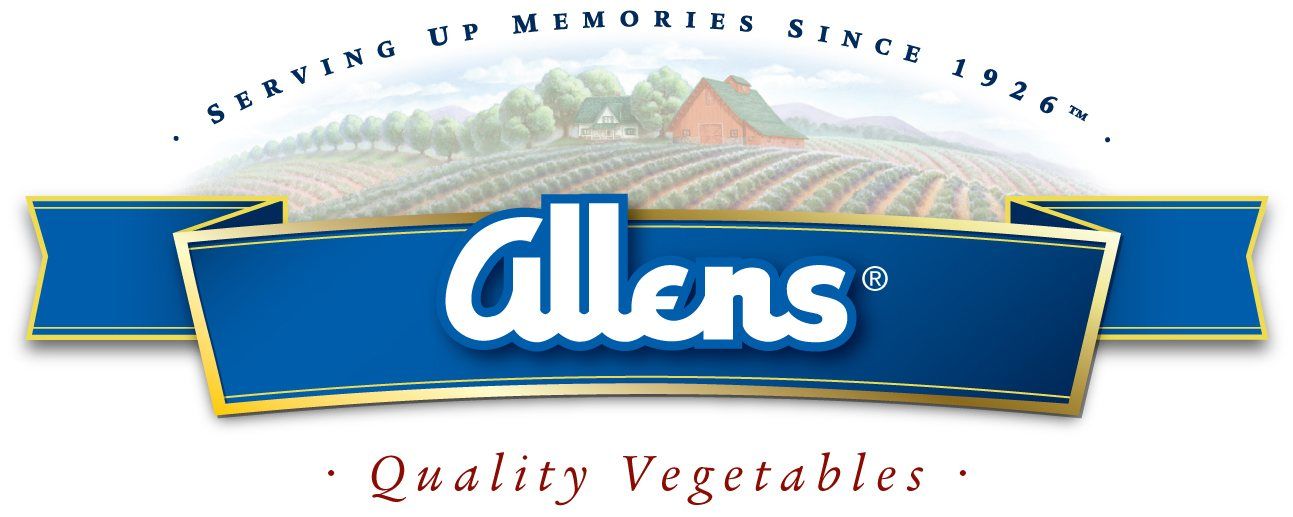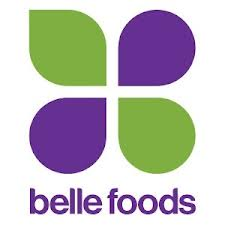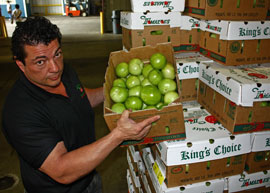 On March 14, 2013, SeaFax reported that:
On March 14, 2013, SeaFax reported that:
East Coast Brokers & Packers Inc and six of its affiliates, Circle M Ranch Inc, Ruskin Vegetable Corporation, Oakwood Place Inc, Byrd Foods of Virginia Inc, Eastern Shore Properties Inc and Stellaro Bay Inc, and the companies’ principals, Batista and Evelyn Madonia, all filed petitions for Chapter 11 bankruptcy between March 6 and March 11 with the U.S. Bankruptcy Court for the Middle District of Florida.
The debtors filed motions March 12 seeking to have the bankruptcy cases jointly administered under East Coast Brokers & Packers Inc, Case #13-02894.
The debtors have not yet presented their schedules, but estimate they hold assets totaling from $50 million to $100 million and owe between 200 and 999 creditors liabilities ranging from $50 million to $100 million.
Although East Coast Brokers & Packers Inc, Circle M Ranch Inc, Ruskin Vegetable Corporation, Oakwood Place Inc and the Madonias each submitted their top 20 list of unsecured creditors, only one of the debtors names food vendors on the documents and claims total $15,500 or less.
According to court documents, East Coast Brokers & Packers Inc distributes tomatoes and other agricultural products farmed by Circle M Ranch Inc. Additionally, East Coast Brokers & Packers Inc is also responsible for managing the packing and sales operations of the Madonias’ businesses.
The debtors informed the bankruptcy court that Ruskin Vegetable Corporation and Byrd Foods of Virginia Inc own packing houses. In addition, court documents state Eastern Shore Properties Inc owns property used to house farm workers, Stellaro Bay Inc owns property in Virginia and Oakwood Place Inc owns property which previously operated as a hotel known as Red Rose Inn & Suites, but the hotel operations have ceased.
Court documents state the Madonias own more than 20% of the issued and outstanding common stock or membership interests in East Coast Brokers & Packers Inc, Circle M Ranch Inc, Ruskin Vegetable Corporation, Oakwood Place Inc, Byrd Foods of Virginia Inc, Eastern Shore Properties Inc and Stellaro Bay Inc.
The debtors said in their motions seeking joint administration that their operations are closely intertwined, other than Oakwood Place Inc.
According to the joint administration motion, each of the debtors is indirectly obligated on significant debts, with MetLife Agriculture Investments owed around $46 million by the Madonias, East Coast Brokers & Packers Inc and Circle M Ranch Inc, while Stellaro Bay Inc guaranteed that debt.
The debtors conveyed to the bankruptcy court that their farming operations have been reduced in scope due to their lack of funds to support farming operations, leading to the Chapter 11 filings.
On March 11, 2013, the Bankruptcy Court issued an order setting the initial status conference to be held on March 28, 2013. At this conference, the court will: (l) fixing a date by which the Debtor−in−Possession (DIP/Trustee) must assume or reject executory contracts or unexpired leases; (2) to set a date by which the DIP or Trustee, if one has been appointed, is to file a disclosure statement and the plan; (3) to set a date to solicit acceptance of the plan; (4) to set a date for which a party of interest, other than the Debtor, may file a plan; (5) to set a date by which a proponent of a plan, other than the Debtor, shall solicit acceptance of the plan; (6) to set the scope and format of the notice concerning a hearing on the approval of the disclosure statement; (7) and to consider whether or not the approval of the disclosure statement should be combined with the hearing on confirmation of the plan.


 On September 30, 2013, Fresh & Easy Neighborhood Market, Inc. filed for chapter 11 bankruptcy protection in the District of Delaware and was assigned case number 13-12569. The Debtor’s voluntary petition estimates: (i) between 10,000 and 25,000 creditors; (ii) holding assets valued between $100 million and $500 million, and; (iii) liabilities between $500 million and $1 billion dollars. This case was assigned to Judge Kevin J. Carey.
On September 30, 2013, Fresh & Easy Neighborhood Market, Inc. filed for chapter 11 bankruptcy protection in the District of Delaware and was assigned case number 13-12569. The Debtor’s voluntary petition estimates: (i) between 10,000 and 25,000 creditors; (ii) holding assets valued between $100 million and $500 million, and; (iii) liabilities between $500 million and $1 billion dollars. This case was assigned to Judge Kevin J. Carey. The Official Committee of Unsecured Creditors in the Pro’s Ranch Markets’ bankruptcy case recently retained Freeborn’s Bankruptcy and Financial Restructuring Group to help maximize their recovery in this Chapter 11 case. Specifically, Freeborn possesses considerable experience representing official committees of unsecured creditors in chapter 11 cases involving retail grocers, food service companies, and food distribution companies. Because the attorneys in Freeborn’s Food Industry Team routinely represent these same types of food industry clients, we are highly familiar with the issues affecting both debtors and creditors in this space. This allows Freeborn to be incredibly effective when it comes to maximizing value for creditors.
The Official Committee of Unsecured Creditors in the Pro’s Ranch Markets’ bankruptcy case recently retained Freeborn’s Bankruptcy and Financial Restructuring Group to help maximize their recovery in this Chapter 11 case. Specifically, Freeborn possesses considerable experience representing official committees of unsecured creditors in chapter 11 cases involving retail grocers, food service companies, and food distribution companies. Because the attorneys in Freeborn’s Food Industry Team routinely represent these same types of food industry clients, we are highly familiar with the issues affecting both debtors and creditors in this space. This allows Freeborn to be incredibly effective when it comes to maximizing value for creditors. On July 1, 2013, Belle Foods LLC filed for Chapter 11 bankruptcy protection in the Northern District of Alabama.
On July 1, 2013, Belle Foods LLC filed for Chapter 11 bankruptcy protection in the Northern District of Alabama. On Mary 30, 2013, Tom Karst of The Packer published an article discussing the Pro’s Ranch Markets bankruptcy case and the $7.2 million dollars in anticipated PACA trust claims. Here is a link to Tom Karst’s article:
On Mary 30, 2013, Tom Karst of The Packer published an article discussing the Pro’s Ranch Markets bankruptcy case and the $7.2 million dollars in anticipated PACA trust claims. Here is a link to Tom Karst’s article: 

